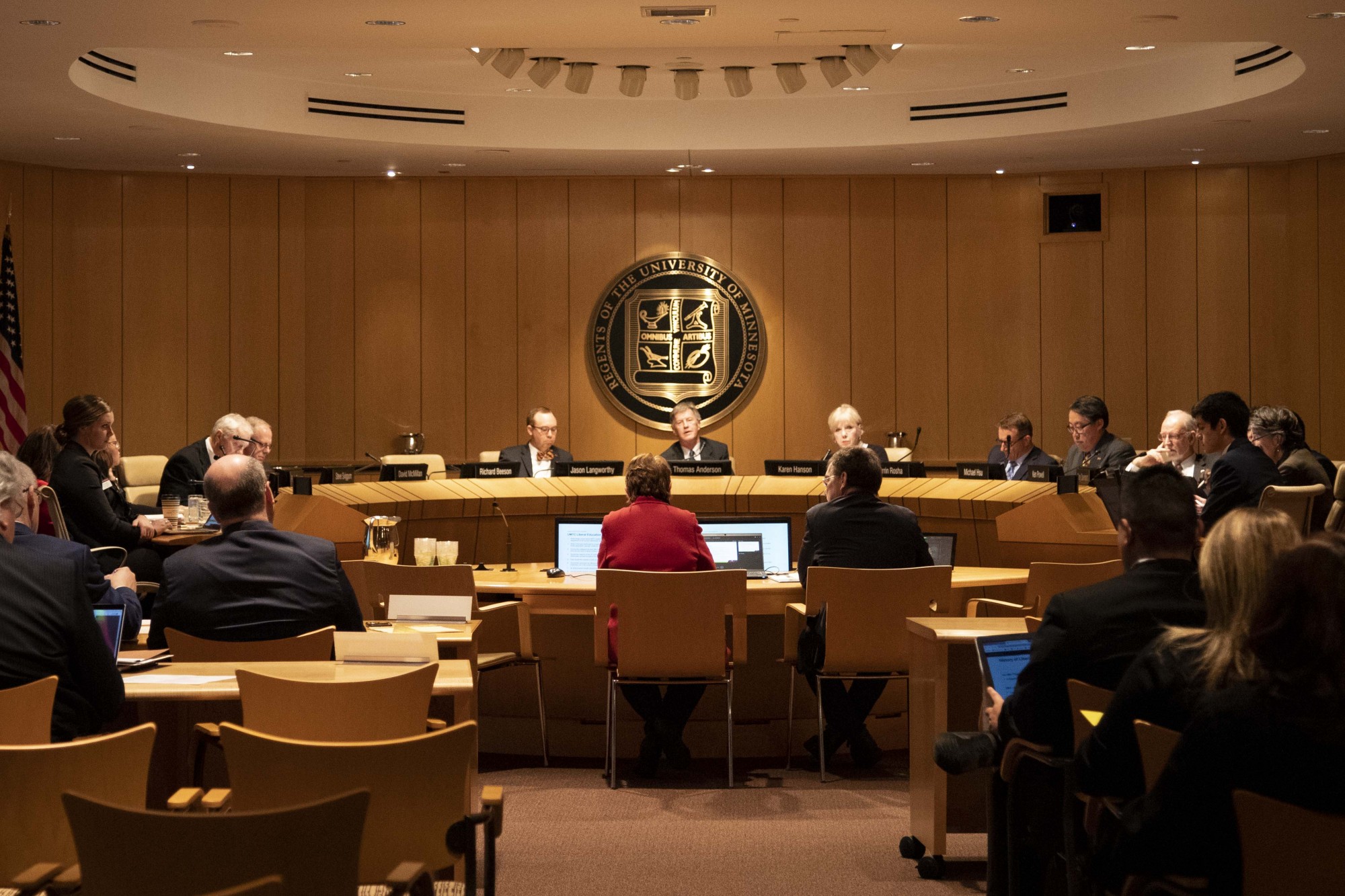The University of Minnesota Board of Regents outlined a plan to address the financial losses resulting from the COVID-19 pandemic and approved changes to policy on the University’s Native American Advisory Boards in virtual meetings held Thursday and Friday.
University President Joan Gabel and board chair Kendall Powell also responded to the announcement of the death of current Regent Kao Ly Ilean Her, which occurred Thursday evening.
Her, who had a chronic lung disease, was hospitalized for several weeks and had recently contracted COVID-19, according to reporting by the Star Tribune. Her was 52 and had served on the board since 2019.
Gabel responded to the news of Her’s death at the Friday meeting.
“She was the warmest advocate and friend — and also the fiercest — and found that intersection of warmth and passion in such a uniquely important and meaningful way,” Gabel said at the meeting.
Addressing the budget deficit
Administrators updated the board on the University’s current financial situation and provided new projections on the budget deficit.
Senior Vice President for Finance and Operations Myron Frans said the total deficit for the current year is more than $172 million, an increase from the previously estimated $166 million deficit announced last year.
Most of these shortfalls are due to lost revenue from tuition costs, housing, dining and parking fees and athletics programs, as well as other additional costs related to the pandemic.
In order to address this shortfall, the University plans to use a variety of funding sources, including more than $4 million from the University’s central reserves and $45 million in loans.
Frans expressed his concern with the University’s need to take out loans to account for financial losses.
“To have this kind of a loss is not a good situation,” Frans said at the meeting. “To be in a situation where we’re going to have to come up with some loan structure in fiscal [year] 2022 to make up for these losses, is not the way you want your budget to end.”
The University will also use approximately $70 million in federal COVID-19 relief funding, from bills like the CARES Act and American Rescue Plan, to address the shortfall.
Next month, administrators will start to prepare and discuss next year’s budget with the board. Currently, it is expected that the budget will improve and recover from the impact of the pandemic, though there still may be some lingering effects, according to Julie Tonneson, associate vice president for finance.
“In many cases, we’re expecting [the 2022 budget] to remain below ‘normal levels’, but to be rising as we phase back in or transition to fuller activity levels,” Tonneson said at the meeting.
American Indian Advisory Board policy
The board also unanimously approved changes to the board’s American Indian Advisory Boards policy. The changes clarify language in the policy and the channels of communication between advisory board chairs, campus leaders and the University president.
“There is tremendous work ahead, but this is a good step in that direction,” said Michael Goh, vice president for Equity and Diversity, at the meeting.
This policy, originally adopted in 1994, requires that each campus establish advisory boards so that University policies “broadly reflect the relevant American Indian communities.”
However, the advisory boards for the Twin Cities and Duluth campuses stopped meeting around 2010 and advisory boards on the Crookston and Rochester campuses were never established, according to meeting materials. The board has not discussed the policy since 2015.
Since then, the University has consulted various stakeholder groups, including the Minnesota Indian Affairs Council (MIAC) and American Indian faculty, staff and students in order to revise the policy and begin to reimplement the advisory boards.
MIAC sent a letter to the board last year requesting that they partner with the Tribal Nations, create a tuition waiver for American Indian students and reestablish the advisory boards, among other requests.
Several regents voiced their support for the policy amendments at the meeting, including regent David McMillan and newly elected regent James Farnsworth.
“[The policy] brings more clarity to a really important structure for our University to continue to build upon and live out our mission of engaging with Tribal Nations,” Farnsworth said at the meeting. “Having recently discovered … some Native American background myself, I’m particularly interested in this issue and look forward to continuing to support it.”



















